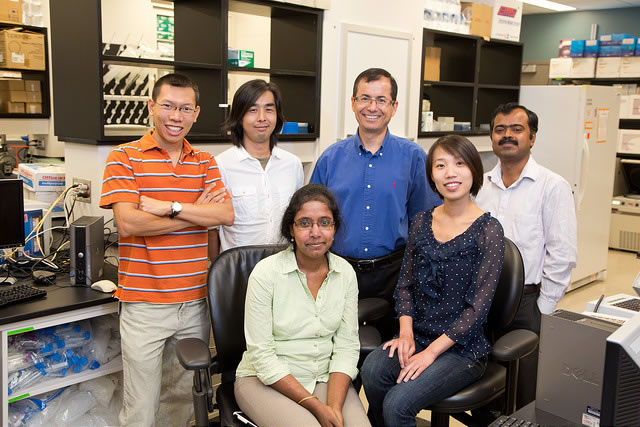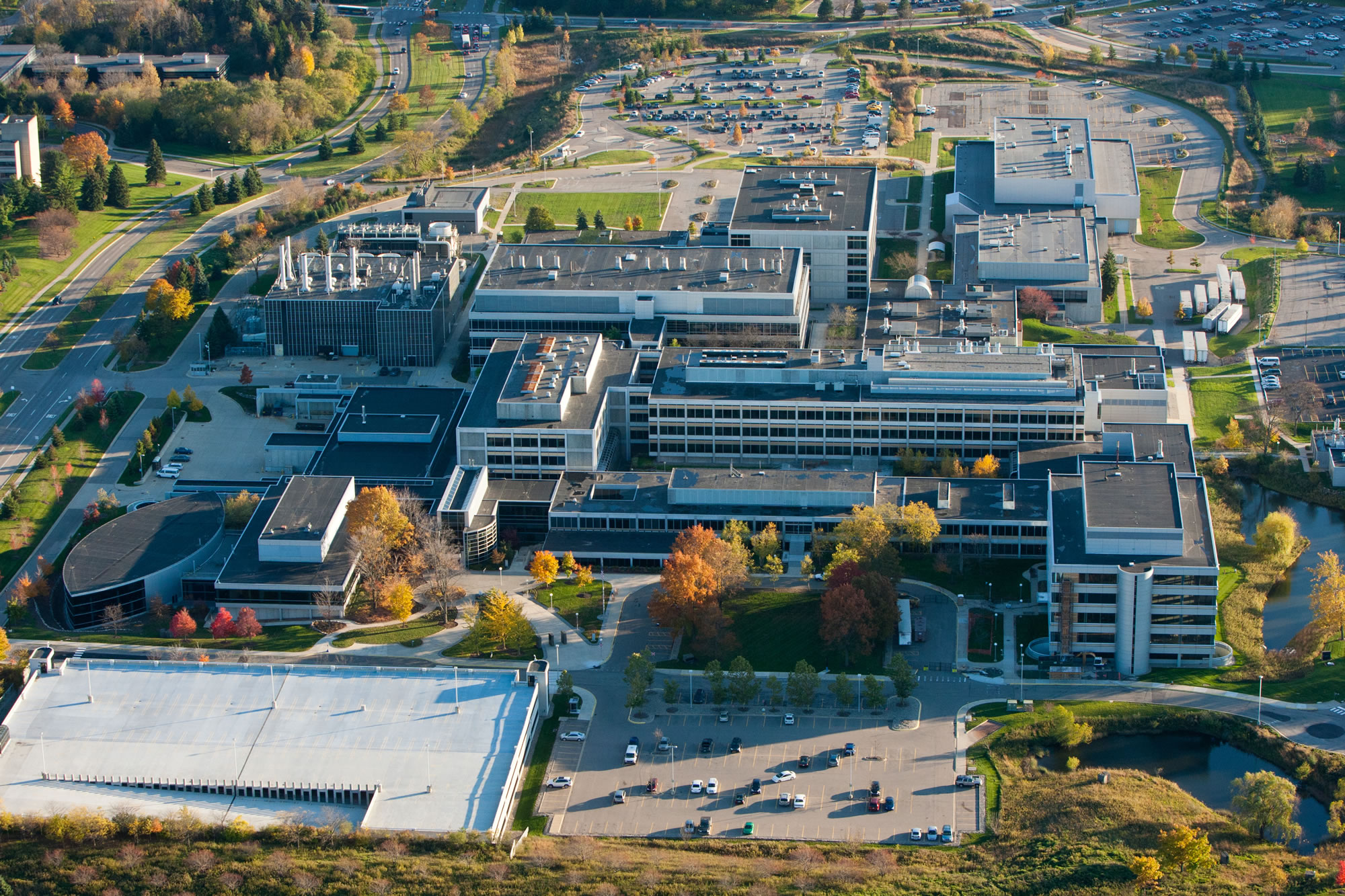Research Programs
Strong Organizational Commitment to Research
World-class scientists and clinicians at the University of Michigan Rogel Cancer Center are committed to research and discovery, an essential component of our designation as a National Cancer Institute comprehensive cancer center. We know that the way to eliminate cancer is through innovative advancements and partnership between scientists and clinicians. The highly targeted research efforts at the cancer center move from innovative investigations in the laboratory to the translational integration of these discoveries to patients through a wide range of programs, including:
- Cancer Control and Population Sciences - Associate Director: Christopher Friese, Ph.D., R.N.
- Co-leaders: Christine Veenstra, M.D., C. Leigh Pearce, Ph.D., M.P.H., and Lauren Wallner, Ph.D., M.P.H.
- Translational & Clinical Research
- Translational & Clinical Research - Co-Leaders: Theodore Lawrence, M.D., Ph.D., Joshi Alumkal, M.D. and Ulka Vaishampayan, MBBS, FAB
- Basic Science Division - Associate Director: Anj Dlugosz, M.D.
- Cancer Hematopoiesis & Immunology: Co-Leaders: Ryan Wilcox, M.D., Ph.D. and Weiping Zou, M.D., Ph.D.
- Cancer Genetics Research: Co-Leaders: Sami Malek, Ph.D., and Kathy Cho, M.D.
- Signaling and Tumor Microenvironment: Co-Leaders: Yatrik Shah, Ph.D., and Marina Pasca Di Magliano, Ph.D.
- Developmental Therapeutics: Co-Leaders: Jolanta Grembecka, Ph.D., and Judith Sebolt-Leopold, Ph.D.
Focus on Collaboration and Teamwork
Teamwork is the basis of our collaborative approach at the U-M Rogel Cancer Center. With the full support of university leadership, we encourage collaboration across all research spectrums, including medical, engineering and pharmacy – to advance cancer care through innovation:

- Through our focus on team science and research excellence, we aim to be a national leader in prevention, early diagnosis and optimal treatment for those at risk of and affected by cancer.
- The close proximity of the university’s highly rated and high quality research teams in Ann Arbor allows researchers to meet together and approach the scientific process collaboratively, sharing results and feedback quickly and easily.
- We offer a broad brush of research and are open to exploration across all departments. We never anticipate where the next discovery will be made as we strive to define which discoveries have the greatest potential to effectively prevent, diagnose and treat cancer.
Substantial Advances in the Cancer Field through Collaboration
In recent years there have been substantial advances in the cancer field, including discoveries and innovation that span across disease areas.
At the Rogel Cancer Center, we can harness innovation by engaging disciplines that are not typically thought to be central to attacking the cancer problem (including faculty in fields such as engineering and mathematics), as well as through more traditional collaborations between faculty in medicine, public health, nursing and social work. Our cancer center faculty represent more than 50 departments across 9 U-M schools.

Great Opportunities for Finding New Discoveries
At the U-M Rogel Cancer Center, we are constantly searching to understand and identify the unknowns that underpin cancer development with genetics and epigenetics (signals that tell the genes what to do), discovering new approaches to target proteins that fuel cancer and cancer triggers.
An explosive expansion of new FDA-approved therapeutics has rapidly disseminated across disease areas. This includes immune checkpoint inhibitors and many new tyrosine kinase inhibitors. Likewise, in disease monitoring, the availability of new technologies such as liquid biopsy approaches represent advances that span specific disease types. All indications are that this represents an enduring direction of change for the cancer field for the foreseeable future and one that offers great opportunities for expediting discoveries and their application in oncology.
Because the University of Michigan supports research across the strengths of all aspects of discovery, the U-M Rogel Cancer Center benefits from expertise in all areas, including the world-class University of Michigan College of Engineering. Collaborations with engineering have allowed for the development of nanotechnology for clinical applications such as ejected devices for therapeutic injections. Another collaboration with engineering researchers includes high-intensity ultrasound that can be used for less invasive cancer treatments.
Organizational Support from Shared Resources
Supporting basic, clinical and population sciences researchers, the Rogel Cancer Center's Shared Resources are available to facilitate internal research projects, as well as visiting scientists or cancer researchers outside our system. With resource expertise and strong integrity of services, our shared resources team provides services integral to research and discovery processes and outcomes.
Our team provides the following shared resources services:
- Cancer Data Science
- Cell & Tissue Imaging
- Experimental Irradiation
- Flow Cytometry
- Health Communications
- Immune Monitoring
- Pharmacokinetics
- Preclinical Molecular Imaging
- Structure and Drug Screening
- Tissue & Molecular Pathology
- Transgenic Animal Models
There are also two developing shared resources:
- Proteomics
- Single Cell Spatial Analysis
